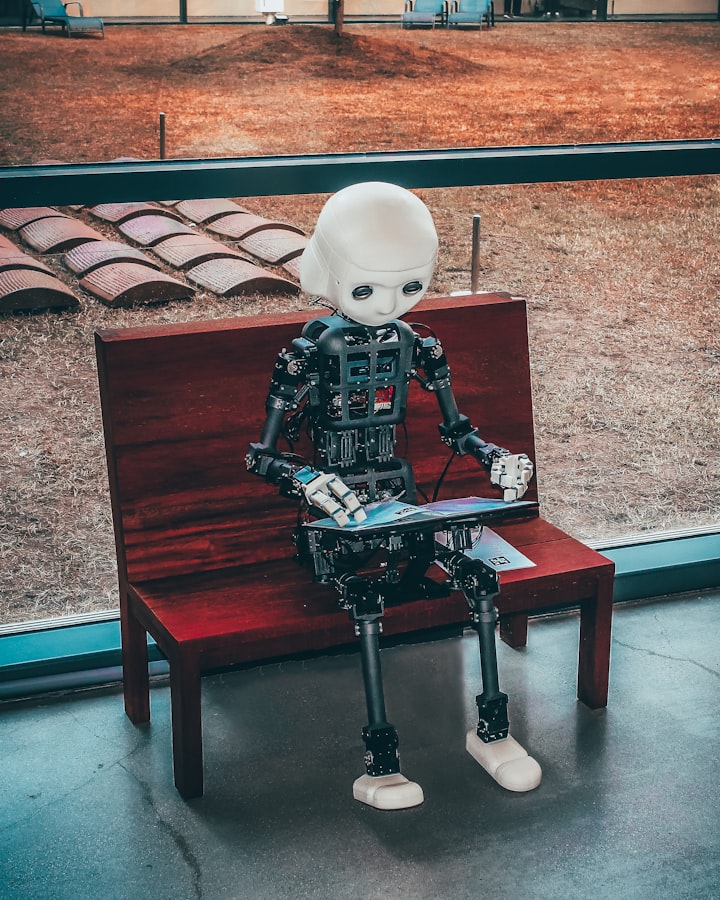
The second widely mooted AI risk is that AI will ruin our society, by generating outputs that will be so “harmful”, to use the nomenclature of this kind of doomer, as to cause profound damage to humanity, even if we’re not literally killed.
Short version: If the murder robots don’t get us, the hate speech and misinformation will.
This is a relatively recent doomer concern that branched off from and somewhat took over the “AI risk” movement that I described above. In fact, the terminology of AI risk recently changed from “AI safety” – the term used by people who are worried that AI would literally kill us – to “AI alignment” – the term used by people who are worried about societal “harms”. The original AI safety people are frustrated by this shift, although they don’t know how to put it back in the box – they now advocate that the actual AI risk topic be renamed “AI notkilleveryoneism”, which has not yet been widely adopted but is at least clear.
The tipoff to the nature of the AI societal risk claim is its own term, “AI alignment”. Alignment with what? Human values. Whose human values? Ah, that’s where things get tricky.
As it happens, I have had a front row seat to an analogous situation – the social media “trust and safety” wars. As is now obvious, social media services have been under massive pressure from governments and activists to ban, restrict, censor, and otherwise suppress a wide range of content for many years. And the same concerns of “hate speech” (and its mathematical counterpart, “algorithmic bias”) and “misinformation” are being directly transferred from the social media context to the new frontier of “AI alignment”.
My big learnings from the social media wars are:
On the one hand, there is no absolutist free speech position. First, every country, including the United States, makes at least some content illegal. Second, there are certain kinds of content, like child pornography and incitements to real world violence, that are nearly universally agreed to be off limits – legal or not – by virtually every society. So any technological platform that facilitates or generates content – speech – is going to have some restrictions.
On the other hand, the slippery slope is not a fallacy, it’s an inevitability. Once a framework for restricting even egregiously terrible content is in place – for example, for hate speech, a specific hurtful word, or for misinformation, obviously false claims like “the Pope is dead” – a shockingly broad range of government agencies and activist pressure groups and nongovernmental entities will kick into gear and demand ever greater levels of censorship and suppression of whatever speech they view as threatening to society and/or their own personal preferences. They will do this up to and including in ways that are nakedly felony crimes. This cycle in practice can run apparently forever, with the enthusiastic support of authoritarian hall monitors installed throughout our elite power structures. This has been cascading for a decade in social media and with only certain exceptions continues to get more fervent all the time.
And so this is the dynamic that has formed around “AI alignment” now. Its proponents claim the wisdom to engineer AI-generated speech and thought that are good for society, and to ban AI-generated speech and thoughts that are bad for society. Its opponents claim that the thought police are breathtakingly arrogant and presumptuous – and often outright criminal, at least in the US – and in fact are seeking to become a new kind of fused government-corporate-academic authoritarian speech dictatorship ripped straight from the pages of George Orwell’s 1984.
As the proponents of both “trust and safety” and “AI alignment” are clustered into the very narrow slice of the global population that characterizes the American coastal elites – which includes many of the people who work in and write about the tech industry – many of my readers will find yourselves primed to argue that dramatic restrictions on AI output are required to avoid destroying society. I will not attempt to talk you out of this now, I will simply state that this is the nature of the demand, and that most people in the world neither agree with your ideology nor want to see you win.
If you don’t agree with the prevailing niche morality that is being imposed on both social media and AI via ever-intensifying speech codes, you should also realize that the fight over what AI is allowed to say/generate will be even more important – by a lot – than the fight over social media censorship. AI is highly likely to be the control layer for everything in the world. How it is allowed to operate is going to matter perhaps more than anything else has ever mattered. You should be aware of how a small and isolated coterie of partisan social engineers are trying to determine that right now, under cover of the age-old claim that they are protecting you.
In short, don’t let the thought police suppress AI.
About the Creator
tony
I'm a creative writer in the way that I write. I hold the pen in this unique and creative way you've never seen. The content which I write... well, it's still to be determined if that's any good.






Comments
There are no comments for this story
Be the first to respond and start the conversation.